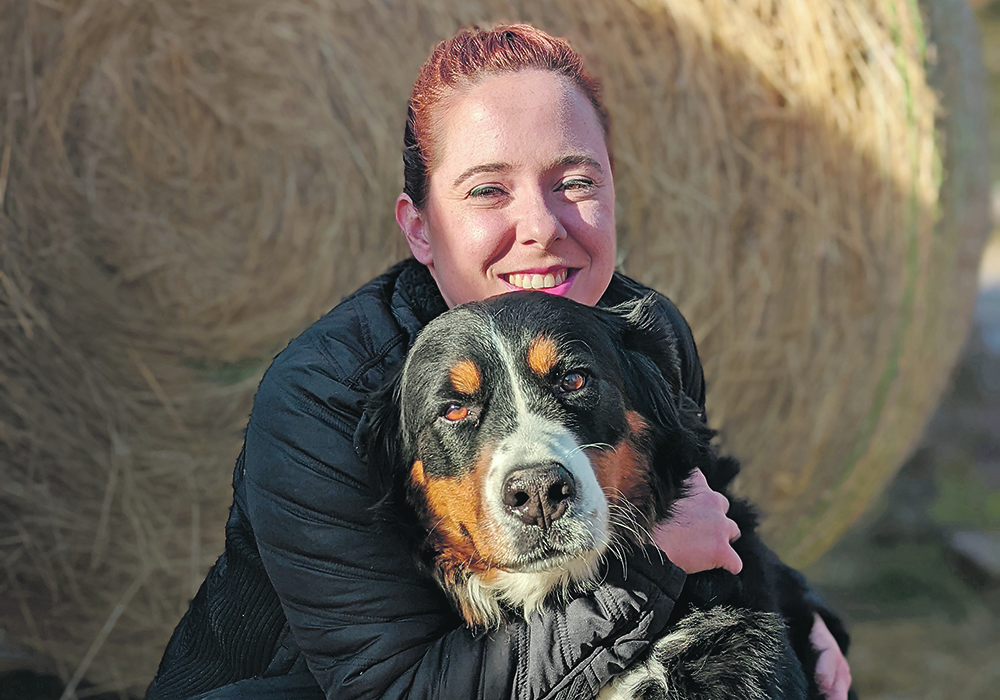Making the expense of a quality, trustworthy farm sitter part of the vacation budget can lead to a more peaceful holiday
Whether it’s applying Vaseline to chicken combs in -30 C temperatures to prevent frostbite, wrangling horses out of fields they’re not supposed to be in, feeding the inside dogs and cats or hunkering down for a one-on-one session with a needy sheep, Gwen Mann has done it all for her various farm-sitting clients.
“Horses, alpacas, sheep, cows, poultry… I’ve done them all. I just don’t do babies. No babies,” she says with a laugh.
As the field work winds down for another year, many farm families are looking to get off the farm for a well-earned break. For those without employees or family members to take on the work of day-to-day operations, farm sitters like Mann are their best — maybe even only — option.
Read Also

Accurate accounting, inventory records are important
Maintaining detailed accounting and inventory records is not just a best practice; it’s a critical component of financial health, operational efficiency and compliance with programs like AgriStability.
Finding, and keeping, a farm sitter you trust is essential for a peaceful vacation and Mann has tips for anyone looking to take in a change of scene.
“House sitting isn’t regulated,” she says, “but it is a real job. Plan to pay money.”
Making the expense of a quality farm sitter part of the vacation budget is essential as word gets around in the small sitter community.
“We do talk to each other,” says Mann. “Most of us have a baseline. We may charge a bit more for travel, how many hours for chores or whether there are a lot of medications to give. If you’re slow to pay or you scoff at our price, word gets around.”
In return, a quality farm sitter will have some level of training. In Mann’s case, she has an equine sciences diploma from Olds College, a degree in equine management from the University of the West of England and a wealth of hands-on experience. She also has people she can call if she needs an extra set of hands and she is familiar with most of the veterinarians and feed stores in her area.
“When I am contacted by a new client, the first thing I want to do is go out and meet them, see the animals and routines and talk roughly about what would be expected of me,” she says. “I need a list of emergency contacts and your vet needs to know I am there.”
In case of emergency, Mann always asks clients how much they’re prepared to spend on an animal and asks that owners write down all routines and how-tos so she has a reference manual. In many cases now, she also asks clients to put together an evacuation plan in case of fires.
“Is there paperwork I need to put in the car? Stuff that needs to make it out with me? That’s the big one these days.”
If you’re planning to be away, don’t forget to check with your insurance provider. Co-operators Insurance lists several tips specific to farm situations, including avoiding the use of temporary electrical space heaters, a common source of farm fires. Ensure that these are unplugged and not in use before your departure. Check all furnace exhausts before leaving and test and replace the batteries in smoke and carbon monoxide detectors. Make sure all equipment that won’t be needed is cleaned and secured and consider leaving a list of tasks not to be done in your absence, like welding or other higher-risk chores. Finally, the insurance provider says that walk-throughs of barns, sheds and homes need to be completed every day to look for potential water leaks, damage and temperature control.
It comes down to being prepared and thinking things through, says Mann. What seems so easy to owners is often not as straightforward for farm sitters, something she often has to remind clients.
“What happens if I can’t get in touch with you? If I can’t get a hold of you, give me your mom’s number. Make it easy,” she goes on. “Have back-ups, things like extra water heaters in the winter. Think about things like snow removal — can your farm sitter get through gates; can they operate your equipment safely? Communication is very, very important. Remember, what takes you five minutes could take me half an hour. Your animals don’t know me, they won’t respond the same way.
“Plan ahead. Assume things are going to go wrong.”
If everything on the farm is in order, all the calls and supplies have been made and stocked, you’ve got a great farm sitter and you’re booked and ready to go? Then go have a great time.
“And don’t forget to tell your sitter when you’re home,” says Mann smiling. “We’re as glad to get home to our own faces and spaces as you are.”















